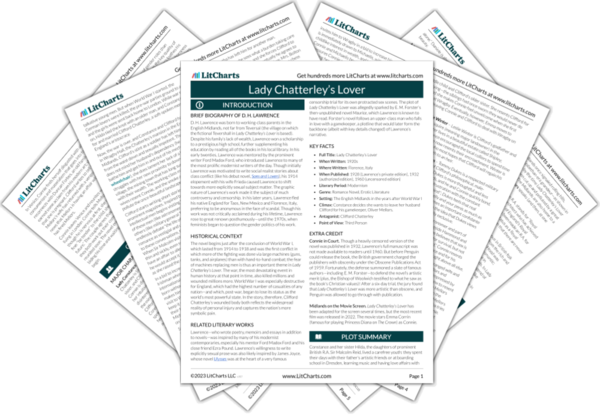Hilda’s appreciation of this forced enjoyment once more testifies to the absence of real, joyful intimacy in her life. Importantly, Connie’s sadness at Giovanni’s attempted prostitution is twofold. Explicitly, it makes Connie sad that sex can be so baldly commodified, turned not into instinct but into transaction. But implicitly, the idea of male prostitution seems particularly dismal within the novel’s framework of desire, which suggests that women should be passive participants instead of active seekers in sexual pleasure.
